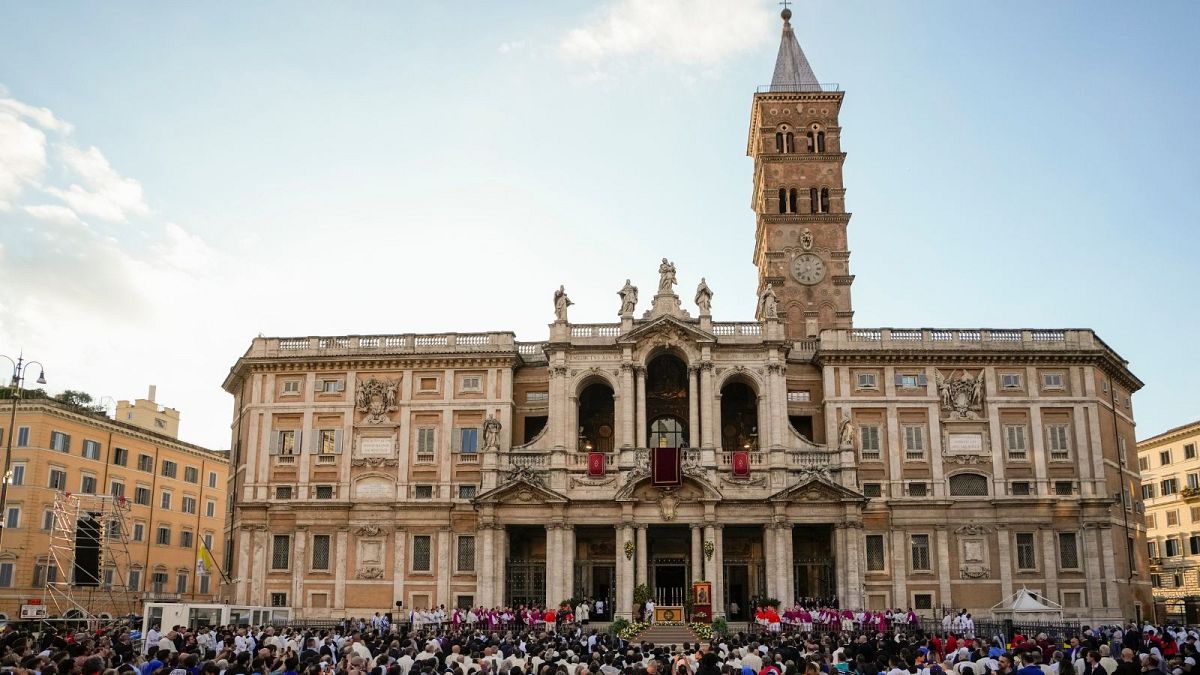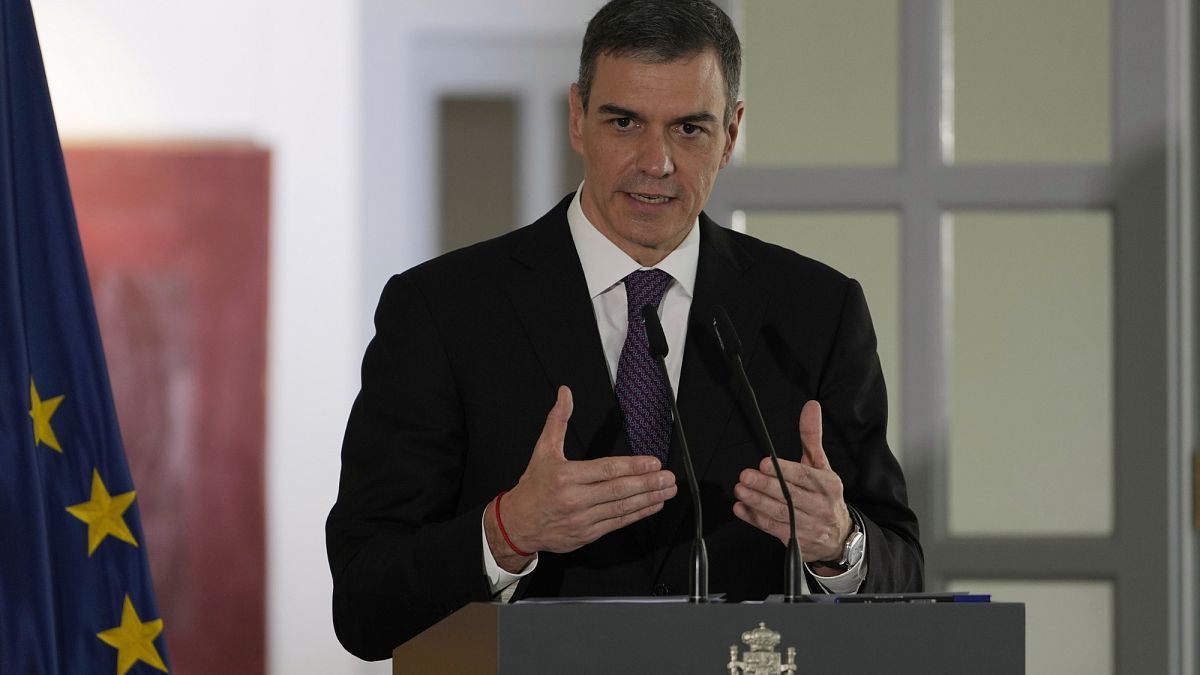A large number of Spaniards took to the streets of Barcelona on Saturday night to protest a housing crunch and the high cost of renting an apartment in the city.
Tens of thousands of people clogged the streets of downtown Barcelona on Saturday to protest the rising cost of renting an apartment in the popular tourist destination.
The protesters blocked traffic on main avenues in the city centre, holding up signs in reading “Fewer apartments for investing and more homes for living" and “The people without homes uphold their rights.” They are demanding a 50% drop in rents and are calling for a strike if the housing situation does not improve.
The protest's organisers claimed that over 126,000 took part, while local police put their estimate at around 22,000.
The high cost of housing has become a major issue in Spain, much like the housing crunch being experienced across many other parts of the world. The average rent in the country has doubled in the last 10 years - the price per square metre has gone from €7.2 in 2014 to €13 this year, according to online real estate website Idealista. The skyrocketing rent is even more severe in major cities like Barcelona and Madrid, while incomes, particularly for younger people, have lagged well behind.
One protester said he is “frustrated and scared” after being told by the owners of the apartment he had been renting for the past 15 years in Barcelona’s city centre that he must move out. He believes that they plan to renovate the apartment and boost its price. Despite earning a "decent salary", he feels he "may be forced to leave town".
Spain's numbers paint a grim picture
A Bank of Spain report says that nearly 40% of Spaniards who rent spend an average of 40% of their income on rents and utilities, much higher to the European Union average of 27%.
Ignasi Martí, a professor for Esade business school and head of its Dignified Housing Observatory stressed that “We are talking about a housing emergency. It means people having many difficulties both in accessing and staying in their homes.”
A major factor driving rental prices upwards has been short-term renters, including tourits. Generally, migrants to Spain are disproportionately hit by the high rents due to them not having enough savings.
Spain is at the lower end of OECD countries, with under 2% of all housing available being public housing for rent (the OECD average is 7%). France is at 14%, Britain 16% and the Netherlands 34%.
Protesters threaten a 'rent strike;
Carme Arcarazo, a spokesperson for Barcelona’s Tenants Union which helped organise the protest, said that renters should go on a “rent strike” and stop paying their monthly rents in a mass protest movement.
“I think we the tenants have understood that this depends on us. That we can’t keep asking and making demands to the authorities and waiting for an answer. We must take the reins of the situation,” Arcarazo said. “So, if they (the owners) won’t lower the rent, then we will force them to do it."
The rising discontent over housing is putting pressure on Spain’s governing Socialist party, which leads a coalition on the national level and is in charge of Catalonia’s regional government and Barcelona’s city hall.
Spanish Prime Minister Pedro Sánchez held a “housing summit” including government officials and real estate developers last month. But the Barcelona’s Tenants Union boycotted the event, saying it was like calling a summit for curing cancer and inviting tobacco companies to participate.
The government's most significant measure has been a rent cap mechanism that the central government has offered to regional authorities based on a price index established by the housing ministry. Rent controls can be applied to areas deemed to be “highly stressed” by high rental prices. Catalonia was the first region to apply those caps, which are in place in downtown Barcelona.
Tourists visiting Barcelona, as well as other parts of Spain, are receiving much of the blame. In response, authorities in Barcelona have promised to completely eliminate the city's 10,000 "tourist apartments" or dwelling with permits for short-term rents, by 2028.
The Barcelona protest came a month after tens of thousands rallied against high rents in Madrid.

 4 months ago
41
4 months ago
41






 We deliver critical software at unparalleled value and speed to help your business thrive
We deliver critical software at unparalleled value and speed to help your business thrive






 English (US) ·
English (US) ·